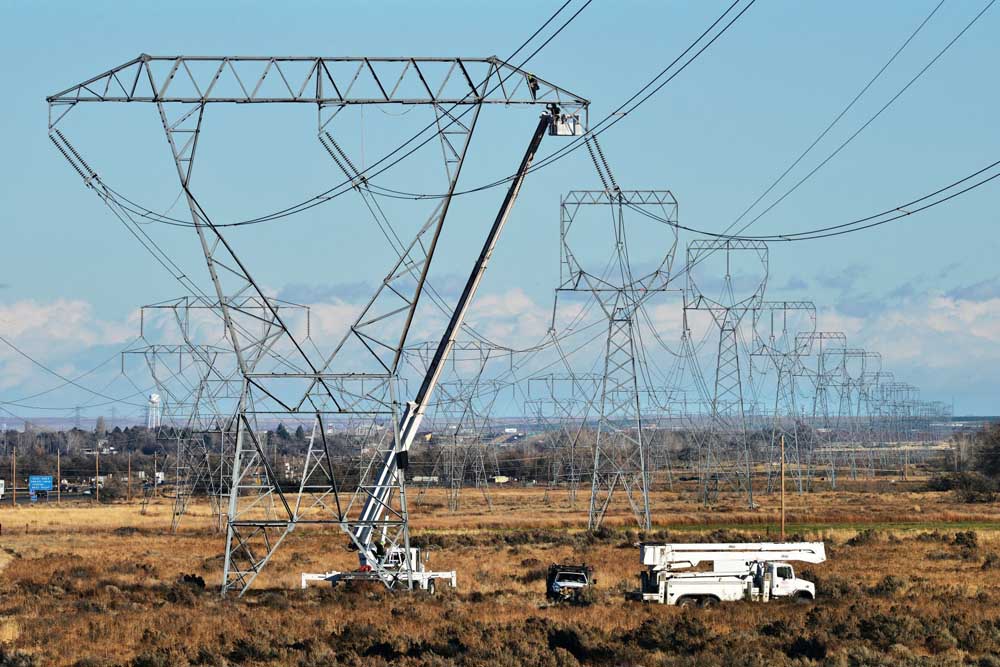Lawmakers scrap provisions easing transmission lines on Oregon farmland
Published 7:48 am Friday, June 6, 2025

- A crew works on a transmission line tower outside Boardman, Ore. Oregon lawmakers have removed provisions easing the construction of transmission lines on farmland from legislation that expedites renewable energy projects. (East Oregonian, file)
At the Oregon Farm Bureau’s urging, lawmakers have removed provisions easing the construction of transmission lines on farmland from legislation that expedites renewable energy projects.
The goal of House Bill 3681, which was recently approved by the Senate after previously passing the House, is to reduce the regulatory timeline for permitting energy facilities in Oregon.
Under the original version of the proposal, high voltage transmission lines deemed to have “statewide significance” would be allowed in “exclusive farm use” zones, similar to wineries, churches and farm stands.
These provisions alarmed the Oregon Farm Bureau, which argued the bill would undermine the state’s land use statutes that protect farmland from non-agricultural development.
“This bill disproportionately harms rural communities and Oregon’s agricultural lands,” said Ryan Krabill, the organization’s government affairs manager, during a legislative hearing on the original proposal.
In response to these criticisms, the proposal’s chief sponsor, Rep. Mark Gamba, D-Milwaukie, agreed to remove HB 3681’s exception for transmission lines from the state’s land use goal of preserving farmland.
Though the change persuaded the Oregon Farm Bureau to shift its position on the bill to neutral, the legislation recently passed by the Legislature still contains provisions the organization considers troubling.
For example, HB 3681 still narrows the legal avenues for farmers and others to challenge proposed energy facilities, requiring all such disputes to be heard directly by the Oregon Supreme Court.
The Farm Bureau also worried about new limits on who can participate in contested case proceedings over energy facilities and on what grounds, which likewise were included in the final version.
“We are concerned this quiets the voices of farmers and ranchers who will be directly impacted by these projects,” Krabill said.
The bill’s supporters say it’s untenable to leave Oregon’s energy facility siting procedures unchanged, as the rate of regulatory approvals for new projects and transmission lines is not keeping up with the state’s growing demand for electricity.
“If you want more renewable energy, you have to have more renewable energy. You can’t just talk about it. You can’t just pass a policy,” said David Brown, founder of Obsidian Renewables, an energy developer based in Lake Oswego, Ore.
The state’s demand for electricity is expected to rise by 30% over the next 10 years, but in some cases, the ability to generate and transmit it is getting bogged down in bureaucratic procedures for decades, Gamba said.
“We are quite simply not building out the grid fast enough to accommodate the load growth coming for us,” he said.
During the House floor vote on HB 3681, Rep. Ed Diehl said he’s usually in favor of streamlining regulations but lamented that lawmakers are only willing to accommodate certain types of projects.
For example, Diehl said one of his constituents has unsuccessfully been trying to obtain a permit for a rock crushing facility on his own property for 17 years.
“I don’t like the way it’s being isolated to one particular niche,” he said.





